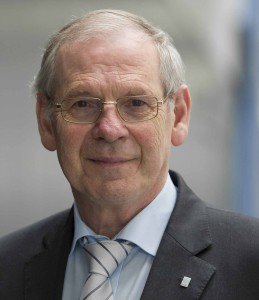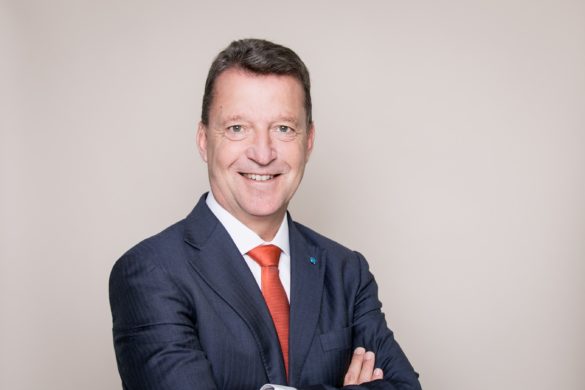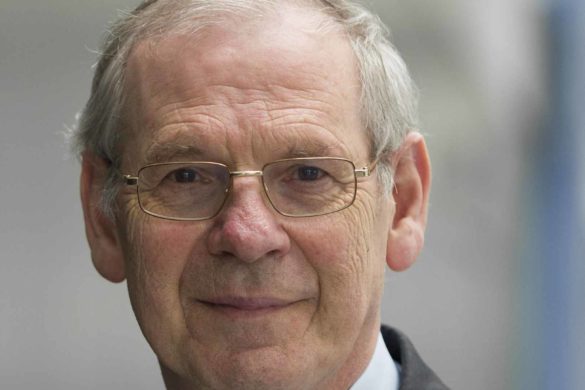The new Consensus Statement on European Brain Research
The need to expand Brain Research in Europe – 2015
On March 18th, 2016 the ‘Consensus statement on European Brain Research’ (Morris et al., 2016) has been launched in Brussels at the Brussel office of the European Brain Council. Several organisations related to brain science, including the European Academy of Neurology, participated. The European Brain Council is uniting the European organisations of physicians for Neurology, Psychiatry, Neurosurgery, the scientists for both molecular and systemic Neurosciences and the European patient organisations for neurological and psychiatric diseases (see below 1).
The statement is a major achievement for European research in the field of brain sciences. The status and needs of clinical and basic Brain Research in Europe was fundamentally updated since the last consensus statement in 2011 (Di Luca et al. , 2011) of all organisations dealing with the Brain.
The document emphasises the need for targeted research both in clinical and basic sciences and the need for much more support to Brain Research. The recommendations are summarized as follows:
- We call upon the European Commission to recognise the continued major needs in basic and clinical brain research, and the current lack of targeted research support
- An immediate step could be for the Commission to liaise with the European Brain Council to optimise ways of supporting services for patients and research.
- Directorate General for Research and Innovation must explore ways to better sustain brain research within Horizon 2020, the Marie-Slodowska-Curie programme, and through other platforms.
Several areas have been defined which currently need particular efforts. These are to understand the development of the human brain, the linking mechanisms between cellular mechanisms and complex behavior, information processing in the brain, the development of new technologies, the understanding of neurological and psychiatric brain diseases, the development of computational neurosciences and the improving of drug delivery to the brain. The group concluded that these are key areas to progress as fast as possible in helping to cure diseases. The document therefore concludes:
- For urgent humanitarian, medical, scientific, political and economic reasons, it is imperative that there is a step-change in the prevention, treatment and management of the brain disorders that will affect one-in-four Europeans in their lifetime.
- Major developments in a range of non-communicable disease areas has clearly demonstrated that where there is dynamic collaboration between all parties committed to making progress – encompassing patient organisations, academics, scientists, medical experts and industry – then exponential progress can be achieved.
- This document sets out very clearly what needs to happen to escalate progress and EFNA1 and GAMIAN1 welcome the document and its recommendations with great enthusiasm and commitment.
For the EAN Gustave Moonen and Wolfgang Oertel* have participated in the development of this document which can be found under: http://www.braincouncil.eu/activities/news/launch-of-ebc-consensus-document-for-brain-research/
This document will help to improve the interaction between European parliament, commission and administration and the European Brain Council which is an important platform for the activities of the EAN in Brussels.
Günther Deuschl, President EAN
Wolfgang Oertel, Chair EAN European Affairs Subcommittee
Gustave Moonen, Member EAN European Affairs Subcommittee
References:
-
Morris RGM, Oertel W, Gaebel W, Goodwin GM, Little A, Montellano P, et al. Consensus Statement on European Brain Research. The need to expand Brain Research in Europe – 2015. European Journal of Neuroscience (in press). 2016.
-
Di Luca M, Baker M, Corradetti R, Kettenmann H, Mendlewicz J, Olesen J, et al. Consensus document on European brain research. The European journal of neuroscience. 2011 Mar;33(5):768-818.
1) Federation of European Neuroscience Societies (FENS); European Academy of Neurology (EAN); European Psychiatric Association (EPA); European College of Neuropsychopharmacology (ECNP); European Federation of Neurological Associations (EFNA); Global Alliance of Mental Illness Advocacy Networks-Europe (Gamian-Europe); European Association of Neurosurgical Societies (EANS)
*Wolfgang Oertel is acting as the current treasurer of the European Brain Council.








